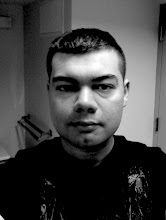
I've been waiting awhile for this documentary to come out. I don't remember when I first heard about it's development but I know it had to be at least 2 years ago. Anyway, the documentary is centered around the idea of "Hell" particularly in Christianity and how many have come to question and even reject it. This topic is of considerably less interest to me anymore as I debated it into the ground and I don't confine my beliefs strictly to the Christian philosophical box any longer. Yet, it is a topic dear to me in the sense that it's what first caused me to question and ultimately explore my faith. The idea of Hell is what first got me to open up my mind to differing spiritual beliefs not only in Christianity but outside of it too. This blog started as a wrestling with the question of Hell essentially so, it seems worth mentioning my thoughts on it here.
First, I will say that
Hellbound? was pretty well done. I think it's difficult to do a documentary on a religious topic correctly but director Kevin Miller did a good job in my opinion. The documentary seems focused on bringing to light the argument for
Christian universalism but I feel the different camps are represented fairly and respectfully. Mark Driscoll and the Westboro Baptist church come off as various shades of crazy, but honestly I think they do that all by themselves in whatever capacity they show up in. Nobody needs to try and make them look nutty.
Second, I think Kevin Miller picked some great interviewees to include the infamous Westboro Baptists, Mark Driscoll, Ray Comfort and a random exorcist. William Paul Young (author of the Shack, which I
reviewed awhile back), Brian McLaren, Gregory Boyd, Chad Holtz and Frank Schaeffer were also good picks. Robin Parry was definitely one of my favorites as his book,
The Evangelical Universalist, had a big impact on me when I was studying the topic of Hell. The only interviewee I didn't care much for (besides the singer of GWAR) was Robert McKee, whom was an atheist arguing for the logic of eternal Hell, which was confusing in itself but I also just wasn't able to coherently put together the points he was articulating for some reason. I also think it would have been nice to see Rob Bell get interviewed for the film, though clips of him do appear and some of the interviewees mention him. In addition, Carlton Pearson is interviewed but it is very brief and only appears in the special features. It's a small gripe of course, but being that they are two former megachurch pastors that essentially made the topic of Christian universalism known to the media and public at large, I feel like they just warranted a little more attention than they recieved.
An unexpected surprise was the mention of
Preterist eschatology, which is another one of those ideas in Christianity that until recently, wasn't something many people seemed to know about unless they went to school for theology or something. It fits in nicely with the discussion on Hell because it's an idea that really shifts your perspective on the concept just like the idea of Hell being nothing more than a state of conciousness in the here and now (I don't know if there's a fancy name for that view though).
One of my favorite things said in the movie was by Frank Shaeffer, whom I previously had never even heard of,
"Even if you accept a tradition and say 'i'm going there for authority' it's still you, a fallible human being, making a decision to accept this as true". I think that is one of the most important points one can make about religion, particularly when one wants to be dogmatic about particular beliefs, books or institutions being of divine origin. You can say that something has the final word on what you believe but logically it seems inescapable that nothing or no one besides
you has given that something the final word. And if you think someone else has chosen the wrong authority on matters of truth, what's there to say you haven't potentially done the same thing?
Anyway, there's a lot of stuff I could dive into here but for the sake of brevity and repressing my inner nerd, I will simply end on the importance of the particular topic this documentary is based on. First, I'll say that I do
not think the importance lies in figuring out what a book, like the Bible, "actually" teaches or figuring out what the early followers of one single religion thought; although that is what many will inevitably reduce it to. On one level, I'd say the importance of questioning Hell is that it ultimately leads to a lot of other questions in regards to one's faith and can free people to make up their own minds as opposed to adhering strictly to one spiritual perspective. On a deeper level, the importance lies in the questions that I see as behind all spiritual thought to one degree or another: W
ho am I? Who are you and who is God? And how deep does the separation between those things go or is that separation merely an illusion? How we answer these questions will invariably impact how we perceive and treat others and also ourselves.

